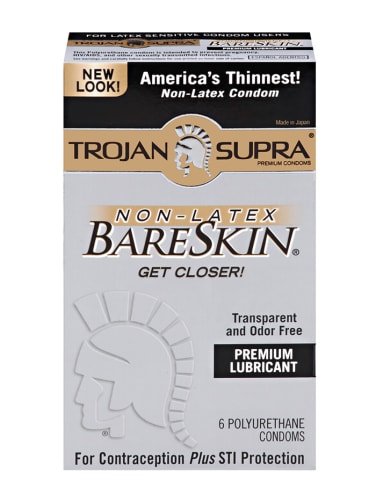Sexual Health Awareness Month

It’s Sexual Health Awareness Month—and there is no more central part of the idea of “sexual health” than being protected from sexually transmitted infections and conditions. It means many other things too, but safer sex is certainly a basic part. Many of us don’t learn enough about it in school or anywhere else, and for some, it isn’t something that affects their lives.
But the thing is, the microbes that cause STIs are simply hitching rides. They don’t read the fine print on your marriage license and do not check your sexual orientation before settling in and doing what they do. So let’s learn some skills, take some responsibility, and stay safe!
What are you protected from?
Safer sex involves awareness of risk and minimizing it. (That’s why we use the term safer and not simply safe—the latter word promises quite a bit, and human error being what it often is, we think in terms of harm reduction and keep it safer.) You can minimize risk via monogamy, yes, but only if you and your partner don’t have an STI to begin with. You can minimize it by saying no to sex, sure— but for those of us that want to say yes we may need another option. We’d like to argue for something you can keep with you at all times… barriers. We’re talking condoms, gloves, dams, Lorals, big sheets of plastic wrap, and all the other items that stop those microbes at the border.
Stop the spread –
We can all d our part to minimize the spread of HIV, HPV, syphilis, gonorrhea, and other microbes that like mucosa (vaginal, anal, mouth, and under the foreskin); slow herpes way down; and put a barrier between you and any bug that weeks to hitch a ride on your (and any of your sex partners’) parts. And even though MPX (formerly known as monkeypox) isn’t an STI, testing, vaccinations, and communication can help to stop the spread of it too.
How do you do it? -
Choose your barriers according to the sex acts you perform—condoms for insertive play, dams/Lorals, plastic wrap for oral/vulva and oral/anal, gloves for sex involving your hands. Learn more about them here and get comfortable talking about them with partners.
Come up with your “safer sex elevator speech”—a few sentences that state what your standards, preferences, and boundaries are—and try it out on the dating apps, at the club, or wherever your next sex partner might be found. If you have a partner now, talk to them about their standards too, and add barriers to your play if warranted—some people also choose to get tested for STIs too, and base decisions on that.
Remember, monogamy isn’t retroactive! And there’s no shame in figuring out how to stop the march of the microbes. It’s what they do! And staying safe and seeking pleasure is what we do.












